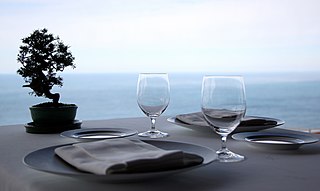Akelarre is a Basque term meaning Witches' Sabbath.

The mythology of the ancient Basques largely did not survive the arrival of Christianity in the Basque Country between the 4th and 12th century AD. Most of what is known about elements of this original belief system is based on the analysis of legends, the study of place names and scant historical references to pagan rituals practised by the Basques.

Akelarre is the Basque term meaning Witches' Sabbath. Akerra means male goat in the Basque language. Witches' sabbaths were envisioned as presided over by a goat.

In Basque mythology, Sugaar is the male half of a pre-Christian Basque deity associated with storms and thunder. He is normally imagined as a dragon or serpent. Unlike his female consort, Mari, there are very few remaining legends about Sugaar. The basic purpose of his existence is to periodically join with Mari in the mountains to generate the storms.

Mari, also called Mari Urraca, Anbotoko Mari, and Murumendiko Dama, is the main goddess of the ancient Basque mythology, who is said to mainly live on the eastern slope of Mount Anboto. From there she takes care of the environment and dispenses justice. When clouds appear around Anboto it is said the this is because Mari has returned to her home on this mountain, the so-called "Cave of The Lady". She is married to the god Sugaar.
Spanish mythology refers to the sacred myths of the cultures of Spain. They include Galician mythology, Asturian mythology, Cantabrian mythology, Catalan mythology, Lusitanian mythology and Basque mythology. They also include the myths and religions of the Celts, Celtiberians, Iberians, Milesians, Carthaginians, Suebi, Visigoths, Spaniards and Roman and Greek mythology.

Zugarramurdi is a town and municipality located in the province and autonomous community of Navarre in northern Spain. It passed into history as the setting of alleged occult activity featured in the infamous Basque witch trials held in Logroño in the seventeenth century. The town is home to the Basque witch museum and the Witch Caves. Every year, spectacular fires are lit in the caves near Zugarramurdi for the celebration of the ‘day of the witch’ on the summer solstice.

Larrun is a mountain at the western end of the Pyrenees. It is located on the border of France and Spain, where the traditional Basque provinces of Labourd and Navarra meet. Its prominence is 670 m.
Sorginak are the assistants of the goddess Mari in Basque mythology. It is also the Basque name for witches, priests and priestesses, making it difficult to distinguish between the mythological and real ones.

The Basque witch trials of the seventeenth century represent the last attempt at rooting out supposed witchcraft from Navarre by the Spanish Inquisition, after a series of episodes erupted during the sixteenth century following the end of military operations in the conquest of Iberian Navarre, until 1524.

Akelarre is a modern Basque restaurant founded in 1974 by Pedro Subijana, and located in Igeldo quarter of San Sebastián, Gipuzkoa, Spain. The restaurant is known for its local seafood. It has achieved three Michelin stars.

Jose Miguel Barandiaran Aierbe, known as On Joxemiel Barandiaran and Aita Barandiaran, was a Basque anthropologist, ethnographer, and priest.

Emma Wilby is a British historian and author specialising in the magical beliefs of Early Modern Britain.

Akerbeltz or Aker is a spirit in the folk mythology of the Basque people. It is said to live inside the land and is believed to have as many elves as servants. In Christianity, Akerbeltz is considered the live image of the devil, performing sexual abuses against Christians.

Pedro Subijana Reza is a Spanish chef who runs the restaurant Akelarre in San Sebastián, Spain. In 2006 his restaurant received its third Michelin star.

Coven is a 2020 historical drama film directed by Pablo Agüero, starring Amaia Aberasturi and Alex Brendemühl.

Ane Is Missing is a 2020 Spanish drama film directed by David Pérez Sañudo, starring Patricia López Arnaiz and Mikel Losada.

Amaia Aberasturi Franco is a Spanish actress from the Basque Country, best known for her roles in 2020 drama film Coven and television series 45 rpm.













